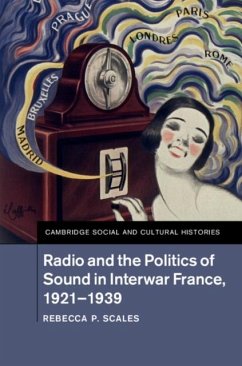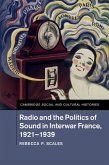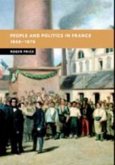In December 1921, France broadcast its first public radio program from a transmitter on the Eiffel Tower. In the decade that followed, radio evolved into a mass media capable of reaching millions. Crowds flocked to loudspeakers on city streets to listen to propaganda, children clustered around classroom radios, and families tuned in from their living rooms. Radio and the Politics of Sound in Interwar France, 1921-1939 examines the impact of this auditory culture on French society and politics, revealing how broadcasting became a new platform for political engagement, transforming the act of listening into an important, if highly contested, practice of citizenship. Rejecting models of broadcasting as the weapon of totalitarian regimes or a tool for forging democracy from above, the book offers a more nuanced picture of the politics of radio by uncovering competing interpretations of listening and diverse uses of broadcast sound that flourished between the world wars.
Dieser Download kann aus rechtlichen Gründen nur mit Rechnungsadresse in A, B, BG, CY, CZ, D, DK, EW, E, FIN, F, GR, HR, H, IRL, I, LT, L, LR, M, NL, PL, P, R, S, SLO, SK ausgeliefert werden.









